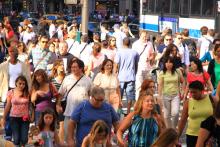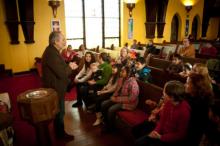Wesley Granberg-Michaelson

In the age of the internet, we have access to a vast quantity of information beyond our dreams even twenty years ago. Most of the time, I use this power to look at LOLCats and Buzzfeed articles like "11 Signs You Might be Dating a Pirate."
But as a Christian who feels the weight of caring for the people Jesus called "the least of these," I feel a responsibility to be educated about the plight of the billions of people who live on less than $2 per day around the world (and here in the US, as recently evidenced by the cuts to food stamp programs).
Caring for the poor directly in our neighborhoods is essential to the mission of the local church, and universally, it is the Church’s responsibility to care for the poor in every corner of the planet.

As Congress makes a final attempt this fall to act on comprehensive immigration reform, the debate is focusing on “securing” our borders and offering a path to citizenship to the 11 million residents here without proper documentation. These politicized arguments, however, don’t see the forest for the trees.
We’re not viewing the broader impact that immigration has had on American society, especially since the last major immigration reform of the 1960s. In particular, we’re missing the way immigration is transforming the religious life of North America.
We commonly view immigration as introducing large numbers of non-Christian religions into U.S. society. True, because of immigration in the last half century, America has become the most religiously diverse country in the world, with thousands of mosques and temples dotting our religious landscape.